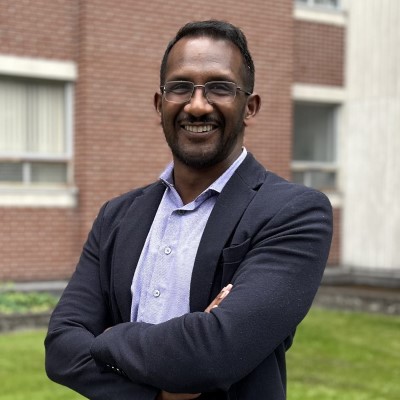 “My goal is to be able to offer as many patients as possible stroke treatments that will let them go home disability-free,” said Dr. Vignan Yogendrakumar.When stroke neurologist Dr. Vignan Yogendrakumar sees patients with a blood clot in their brain, he has two treatment options. Plucking the clot out with a mechanical procedure is highly effective, but only 20 per cent of patients have the right kind of clot – a large one in a large blood vessel. The other option is using drugs that melt the blockage by boosting the body’s natural ability to dissolve clots.
“My goal is to be able to offer as many patients as possible stroke treatments that will let them go home disability-free,” said Dr. Vignan Yogendrakumar.When stroke neurologist Dr. Vignan Yogendrakumar sees patients with a blood clot in their brain, he has two treatment options. Plucking the clot out with a mechanical procedure is highly effective, but only 20 per cent of patients have the right kind of clot – a large one in a large blood vessel. The other option is using drugs that melt the blockage by boosting the body’s natural ability to dissolve clots.
Unfortunately, most guidelines only support using standard clot-busting drugs in the first four and a half hours after stroke symptoms start, which doesn’t give patients much time to seek treatment. Dr. Yogendrakumar wants to test whether expanding the treatment window to 24 hours is safe and effective.
His research also extends to discovery, with analysis of the complex molecular make-up of blood clots which can change hourly, and using this knowledge to evaluate the next generation of clot-busting drugs through groundbreaking clinical trials.
“My goal is to be able to offer as many patients as possible stroke treatments that will let them go home disability-free,” said Dr. Yogendrakumar.
Recently appointed as an associate scientist in the Neuroscience Program at the Ottawa Hospital Research Institute, Dr. Yogendrakumar is a stroke neurologist at The Ottawa Hospital, and assistant professor at the University of Ottawa.
The Ottawa Hospital is a leading academic health, research and learning hospital proudly affiliated with the University of Ottawa and supported by The Ottawa Hospital Foundation.
